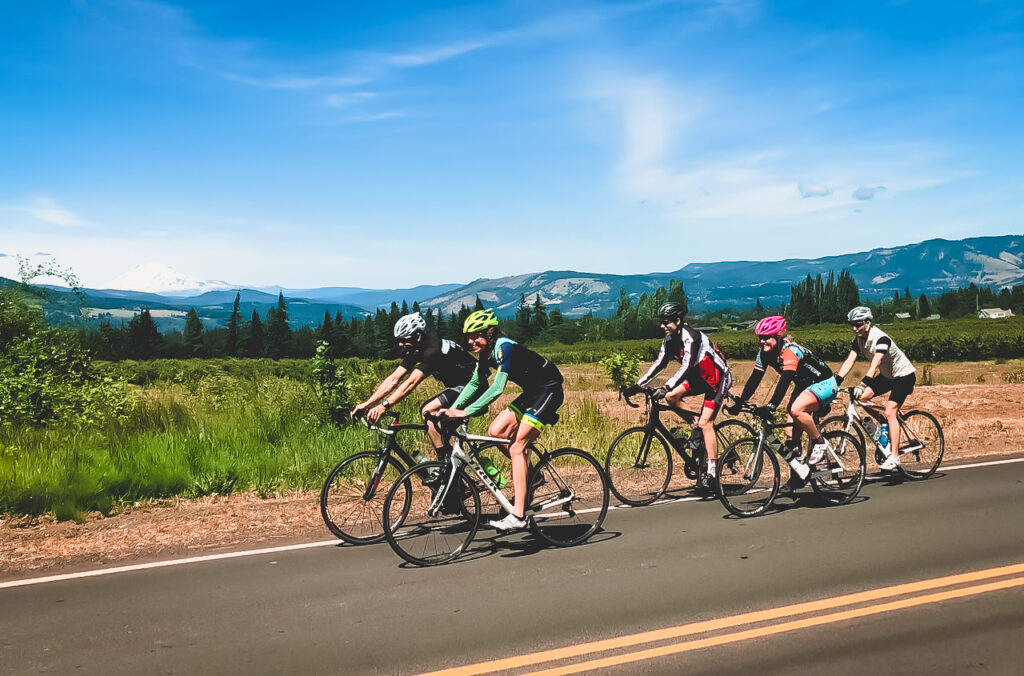Avoiding Common Off Season Mistakes
When we think of the off season, we often rush to shut everything down, take a break and put our feet up. This is not necessarily wrong: Time off should be a relished element of the postseason. But – believe it or not – you can go too far! The off season offers some awesome opportunities for nourishing and building a healthy, happy, fit and fast new year. Here are five common mistakes to avoid.
Mistake 1: Staying skinny.
That just might sound like your coach gave you a “get out of jail free” card! This is not quite the case. But if you have been racing endurance events for the past 6 to 8 months, the chances are that you’ve reduced your body fat and started to break down muscle. Most top athletes will try to add a little bit of body fat through the winter. Simply put, increase your body weight by 2 to 3%. Decreased training volume with a sustained calorie intake might be all it takes…but make sure to enjoy some treats along the way. Focus primarily on a nutritious plate with whole foods and lots of colour. This extra weight will keep your immune system robust while giving you something to work from when you start to ramp up endurance miles in the spring and build muscle back in the gym.
Mistake 2: Turning your brain off.
While it makes sense to back off overall volume, the off season is a prime opportunity to develop sport specific skills. Because you are not in perpetual train-race-recovery mode, you have the ability to consistently work on technique. Spend less time looking at the pace clock and more time looking at video. This is your golden opportunity to become a more efficient athlete. Work with a skills coach to learn how to handle your bike like a tour racer or dial-in run posture like an elite marathoner. Learn the difference between stroke rate and stroke efficiency in the pool, adding both to your toolkit.
Mistake 3: Avoiding intensity.
While we want the body to regenerate through the winter, it is also important to sustain movement efficiency. Overall training should be more aerobic in nature and skill oriented, but it is important to move at sport specific intensities to maintain neuromuscular efficiency, while staying in touch with your aerobic and anaerobic threshold. Do 25-35% of your typical weekly workload in zone 4 or higher and sprinkle intensity throughout the week. It should all be “feel good” fast as opposed to “going to the well” fast.
Mistake 4: Getting weak.
Reducing endurance training is an opportunity to increase strength. Athletes who race multiple endurance events of over three hours throughout the year run the risk of becoming too lean and starting to catabolize muscle. Endurance sports tend to be very linear in nature, causing us to grow strong in some areas and weak in others. Cut back on the endurance activities and add an extra gym day or two for a total of 3-4 times a week. Outside of the gym days, do core strength and mobility; you can do core exercises every day. Mixing up your routine and working your sport-specific muscles on multiple plains keeps you fresh and teaches the body to be strong through diverse movements instead of completely linear. Consult a professional to determine muscular imbalances and to keep your strength scripts fresh and relevant.
Mistake 5: Being anti-social.
Get off your indoor trainer and spend some time working out with friends. This is the time of year when nailing threshold sets is far less important. Ride and run with slower friends you don’t usually get the chance to train with. Go for a walk/jog/hike with your partner. Try some other cross training activities. Play street hockey with your kids. It is really important to periodize your season mentally in the same way that you periodize the year physically. Race season is shifted towards competition simulation and an on-task focus, striving for that high-performance mentality. At this time of year, focus on enjoying your training environment and social circle: Celebrate your health, fitness, and this awesome sports endurance community that we all love.
Lance Watson, LifeSport head coach, has trained many Ironman, Olympic and age-group Champions over the past 30 years. He enjoys coaching athletes of all levels. Contact Coach@LifeSportCoaching.com to tackle your first IRONMAN or to perform at a higher level.
